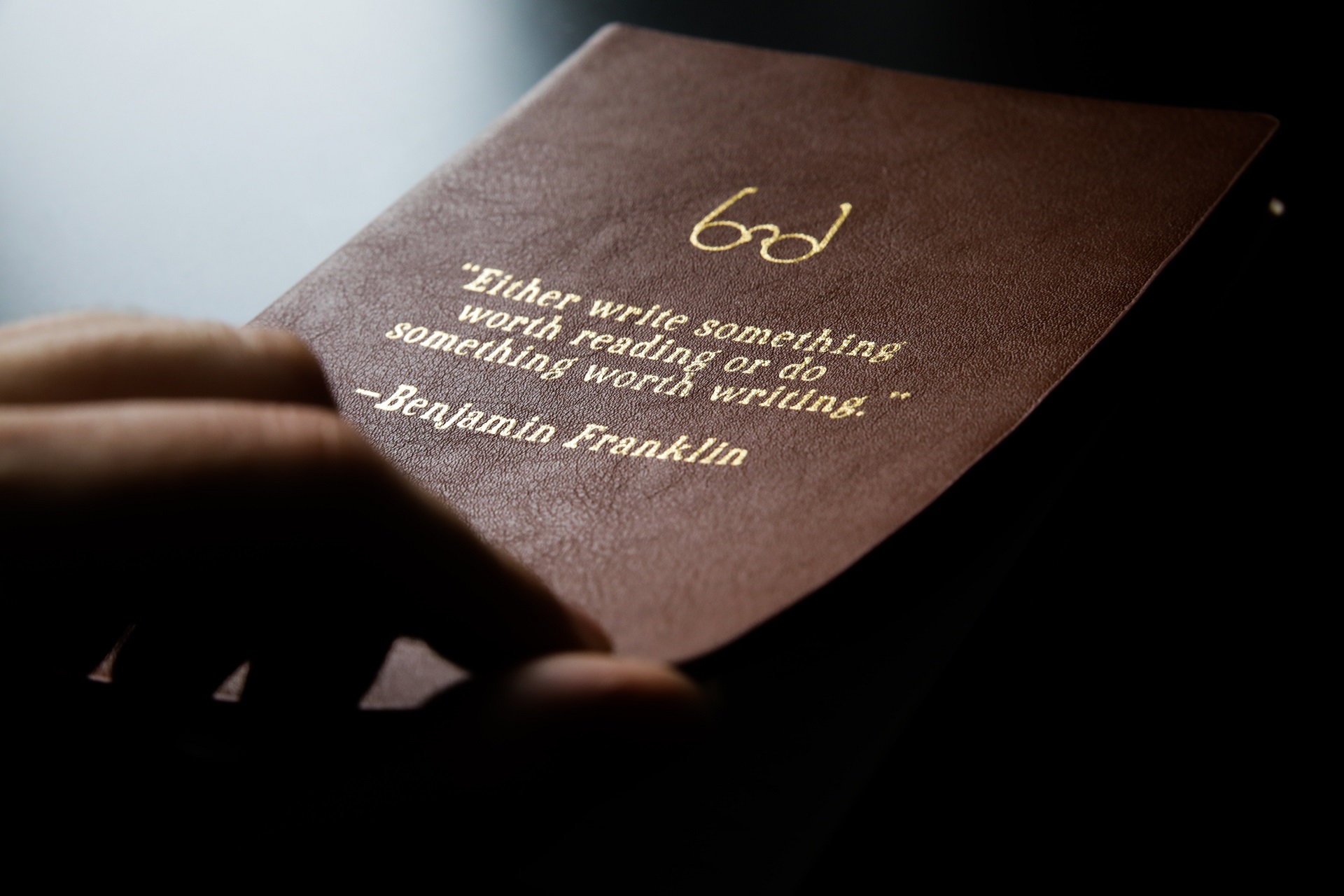
Writing is about relaying a message. It is about communicating with others. We have civilization because we learned to exchange information. Societies that are more efficient in exchanging relevant information develop faster; they became more prosperous than others.
In the United States, we have witnessed decades of decline in newspapers and other print media. It coincides with decades-long unresolved issues such as health care and immigration. Many Americans are pessimistic about the future of the nation. This attitude is prevalent because we do not communicate as well as we used to.
At the dawn of the internet, we expected the new mode of communication would bolster print media by providing technology for the rapid spread of information. The opposite happened. Digital media did not make all of us wiser. We fell for what I often call “a potato chips kind of communication,” for chatting about nothing on Facebook and Twitter. And for a proliferation of trivia in media, Medium included.
I read over 100 articles about writing on Medium
In the past two months, nearly all $8.34 of my Medium membership fee went to mediocre writers for their mostly gibberish articles about writing. I learned a lot; in particular, I was surprised by how deeply misinformed some revered writers are. Usually, when criticizing other writers, I prefer to spell out their names and provide links. I did not do it for this article because I would likely have missed many authors deserving recognition for their ridiculousness. Also, I like to engage in candid discussions with other writers. Very few appreciate it, many take all criticism personally, some block me, and others ignore all critique. By avoiding names, I even the field.
Are you a writer or a scribe?
During my work for the best Polish political periodical, we used to joke that a journalist is a person who can explain to readers things that he or she does not understand. It is an exaggeration but well reflects that journalistic writing involves finding events, scientific studies, interesting individuals, or original ideas and then grasping the message and putting it on paper (today on a computer) so that readers find it worth their time. Even when reporting on seemingly dull matters like weather, markets, or accidents, a talented writer can add that subtle creativity layer to it. That creativity defines a difference between a writer and a scribe.
Interestingly, an artificial intelligence (AI) software, when given a subject, can search a multitude of sources and write a formally correct article. I suspect that some prolific writers on Medium use this kind of software instead of writing themselves. A machine can replace scribes; writers do not need to worry.
Newspapers declined because they gradually shifted toward pleasing the tastes and political leanings of their readers. They avoid controversial subjects in fear of losing the audience. They fill the void with trivia, easy-to-read, mindless pulp. Unfortunately, popping up left and right, internet forums follow the same path. Medium is among them. Authors of many articles on Medium call themselves writers when most are merely scribes.
Potato chips writing
About a century ago, even in wealthy countries like the United States, the primary aim in life for most people was to avoid hunger. The industrialization of farming and food processing made food cheaper and easier to get. About a century ago, caricatures of rich individuals usually showed fat persons. Today, the rich are typically skinny; obesity is the plague among the poor. Healthy eating requires developing a certain mindset that is easier for affluent people to maintain. Mass-produced meals, fast food, and chips are easy choices for the rest of us.
We can observe an analogous process in media. Before the internet, print media was an elite business. Now everyone can be a published writer on the internet. It means, as well, that everyone can find on the internet something to read that fits their tastes.
When food became more affordable, potato chips won. I mention potato chips as the most known at the vast snacks industry. In the world of writing, trifles are those snacks for which there is nothing wrong with having a few of them on rare occasion, but we should not eat them regularly if we want to stay healthy. Too many authors lure readers with short stories about curiosities, celebrities, and bits of advice. Readers get an illusion of becoming informed and wiser. But in reality they are becoming knowledgeable as much as addicted snack eaters are getting healthy.

Junk food for jumbled thoughts
We often say that opinion writing is food for thought. In America today, we should write it in the past tense. Media outlets mirror the political polarization of the nation. Each of them is on a mission to advance an ideological leaning of its choosing. Whatever opinion they publish is designed to divert a reader from critical thoughts about their agenda. It is not food for thought; it is junk food for jumbled thoughts.
Recently, I pointed to the decline of persuasive writing in The New York Times, the top American publication. But it is happening everywhere. Medium is not an exception. Every day, one of the top Medium writers on politics publishes another version of the same fatalistic message that America is in bad shape, and will get worse. Hopelessness is in fashion. He has an impressive number of followers, and a remarkable number of authors trail him, spreading the same catastrophic picture of our reality.
Many Medium writers claim that writing often and publishing daily is their key to making money. It is simply impossible to write a good-quality article daily. I got an idea for this piece about one month ago and started writing it two weeks later. A few days ago, I needed a day off to drive out of town. During the long driving hours, my thoughts were on this essay. I arrived with a few new phrases and rearranged the text.
There is a difference between preparing a gourmet meal and a potato chips factory. Sadly, with the general decline in the quality of writing, very few can see a difference.
The lingering shadow of Rush Limbaugh
Another piece of advice from writers who make money on Medium is to write as one speaks. I find it annoying. I have difficulties following the author’s line of thought. Articles appear as a collection of 15-second sound bites. Some of them hit a nail on its head, a few are off, and others are ridiculous. Rarely do they provide any constructive suggestions; the dystopian visions prevail.
About 30 years ago, when Rush Limbaugh gained nationwide popularity, I turned my car radio to his show. My work required some driving, and for a few months, I listened to Rush Limbaugh almost daily. The man had a talent for engaging the audience. But after a few months, I knew all his tricks and had already heard all versions of his narrative. He had a refreshing message, but soon his one-sided leaning became annoying, and his lack of solid education irritating. In the following years, I checked his show from time to time, still admiring his talent, but not impressed with the message.
But Rush Limbaugh changed the media. All talk-show hosts want to be like him; many political commentators wish to write as he talked. I suspect that many writers on Medium were not fans of Rush Limbaugh. They try to write as they speak, but subconsciously they are writing as Rush Limbaugh would talk. Rush Limbaugh is dead; long live Rush Limbaugh.
The golden standard of a good essay
The art of a classic essay seems to be fading away. Yet, there is no better way to present an argument. Sound bites, borrowed from Facebook, Twitter, or Tik-Tok, may impress an audience educated there, but they are not suitable for persuasive writing. One should learn this in high school. Not everybody does. I realized that when helping a teenager recently. I searched the internet for examples of good essays and was surprised to find that experts gave high schoolers my old article about newspapers as an example.

Throwing pearls in front of boars
I have to credit my high school literature teacher for my writing skills. Interestingly, she started working as a teacher in 1918 and was well past her retirement age when teaching us. It means that she learned how to write an essay more than a century ago; I got a classic education.
She was strict in executing a logical thought process in persuasive writing. But as with all literature lovers, she occasionally got carried away talking at length about the beauty of a poem or a book. Then she became upset, realizing that we were counting flies on a ceiling, looking for birds outside, or checking stuff under the desks. Disappointed, she told us one more time that talking to us about the beauty of literature was like throwing pearls in front of boars – they cannot eat them, so they are not interested.
I have the same thoughts when realizing that today’s audience does not appreciate the value of a classic essay. The money is in the potato chips writing. But as my literature teacher did, I might complain about it but keep doing what I believe is right. After all, my colleagues and I benefited from her persistence.
There is better in Poland
In one of my previous articles, I write about my formative experience back in my native Poland. We tried to use a little freedom of expression we had to advance Poland. It felt like Sisyphean work. At one point, I even wrote a book, “Could it be better in Poland?”
Today there is better in Poland. As much as it was frustrating then, now it feels damn good knowing that at the right time, by my writings, I did whatever I could to make things better.
There was the Soviet Union
The first reviewer of my book, “Could it be better in Poland?” accused me of basing my speculations on the assumption that the Soviet Union would collapse. It was 1980. I looked in his eyes and asked, “Do you believe it will last forever?” It was a conversation killer as he was offended by my arrogant ignorance. At least he saw it that way. Faster than I thought, 11 years later, the Soviet Union ceased to exist.
In an exciting twist, Wiesław Górnicki, one of the top political advisors to General Jaruzelski, the last ruler of socialist Poland, wrote an extensive review of my book as well. During my meeting with Mr. Górnicki in 1983, I noticed he could not get my reasoning out of his head. I was among many with a similar message. The system changed in 1989 and the Soviet Union dissolved in 1991. It happened almost exactly as I speculated in my book, written in 1980. Hence, whenever I look at a map without the Soviet Union on it, it feels good as well.

America has many problems
Articles I read on Medium about writing tend to focus on luring a big audience and on making money. I would say that writing is not much different than anything else one might do. Hence, it is not about writing, it is about the purpose of life in general. Is it about getting rich? Is it about finding love? Is it about having a good job or an interesting hobby?
I would say it is in making the world around us a slightly better place than it was when we arrived. Writers, as proponents of ideas, can do much more than others.
America has many problems. Medium authors comprise a long list of notorious complainants. Most of them seem to chase the dollar by outbidding each other in laying out doomsday scenarios. Potato chips are easier to sell than gourmet food. No one seems to remember anymore that good writing starts with answering basic questions: who, what, where, when, why, and how. I do not sense in media, Medium included, a desire to get to the bottom of our problems and fix them.
Obama gives a hint
There were rumors that Barack Obama’s daughters do not always agree with the politics of their parents. In a recent interview with the former president, CNN’s Anderson Cooper touched on that subject. Praising his daughters, Obama applauded their focus on looking for things that work. It is an indirect self-criticism because Obamacare, the flagship achievement of his administration, does not work as promised.
It is just about time to leave behind writing that condemns “isms” one finds disgusting and applauding “isms” one finds alluring. It is time for realizing that the world is not perfect and never will be. But by understanding what works and what does not, we can make it slightly better tomorrow than it was yesterday. Good writing can make it happen.

 Many tell us what to think. I ask my readers to be skeptical. Question me and others.
Many tell us what to think. I ask my readers to be skeptical. Question me and others. 